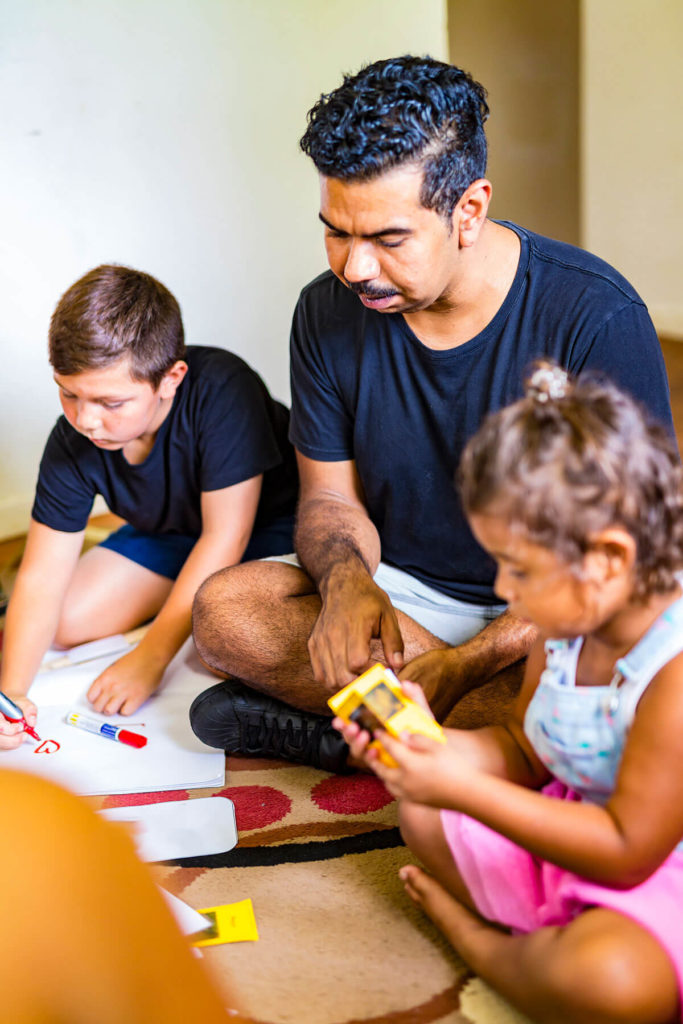
We acknowledge Aboriginal and Torres Strait Islander people as the first Australians and recognise their culture, history, diversity and their deep connection to the land. We acknowledge the past and are strongly committed to improving the lives, and upholding the rights, of Aboriginal and Torres Strait Islander people.
You Be You empowered by Anglicare Southern Queensland acknowledges the Traditional Owners of the lands on which our services now stand. We pay our respect to Elders – past, present and emerging – and acknowledge the important role of Aboriginal and Torres Strait Islander people in caring for their own communities.
We recognise the distinct rights and perspectives of all Aboriginal and Torres Strait Islander people, particularly the right of children to be raised in culture, community and family.
Anglicare acknowledges Aboriginal and Torres Strait Islander families and communities have suffered significant violations of their human rights and these violations continue to impact their daily lives. Anglicare acknowledges the profound grief, suffering and loss caused by the removal of Aboriginal and Torres Strait Islander children from their families, their community and their culture and we continue to be committed to ensuring Aboriginal and Torres Strait Islander children’s cultural identity and relationships with their families and communities are maintained.
Maintaining connection to country
Our cultural support workers play a vital role and are committed in ensuring Aboriginal and Torres Strait Islander children who are in our out-of-home care keep connected to their family, kin, community and culture.
Our cultural support workers have the important role of assisting all young people in care to identify, verify and connect with their traditional country and that the country identified by Queensland Child Safety is correct. This connection process and cultural knowledge contributes to building a strong cultural sense of identity, which has a positive impact of their self-esteem, pride and emotional wellbeing.
Explaining this process of gathering information to non-indigenous carers is important as it brings forward the young person’s language, cultural information, map of country, song, dance, connection to other family members and community. Engaging the carer is crucial to the young person’s development as it is the carer who encourages the use of their language, art and culture in daily use.

What is a Cultural Support Worker?
Our Cultural Support Workers support non-Indigenous foster carers and staff to better understand the needs of Aboriginal and/or Torres Strait Islander children in care and to respond in a holistic way that considers family, spiritual, community and individual needs. They work in close partnership with our Child Safety service centres to achieve the young person’s cultural plans. They also assist other team members to better understand Aboriginal and Torres Strait Islander children and families and support them toward the best outcomes for our young people in care and at risk.
Can I request an identified Aboriginal and/or Torres Strait Islander worker?
If you, or someone in your family identifies as Aboriginal or Torres Strait Islander, you have the right to request a worker who also identifies as Aboriginal or Torres Strait Islander. If we are unable to provide an identified worker, we will work with you to access additional culturally appropriate services or other local Aboriginal and Torres Strait Islander Community Services. If you would prefer, we will support you to explore access to an Indigenous Foster and Kinship Care service if one is available in the local area.
What is the Child Placement Principle?
The Child Placement Principle recognises the importance of connections to family, community, culture and country and guides Child Safety legislation, policy and practice. The Child Placement Principle was developed by the Department of Child Safety and SNAICC to guide foster and kinship care organisations like us when making decisions about care for Aboriginal and/or Torres Strait Islander children and young people. You can read more about the Child Placement Principle here.
Have questions?
